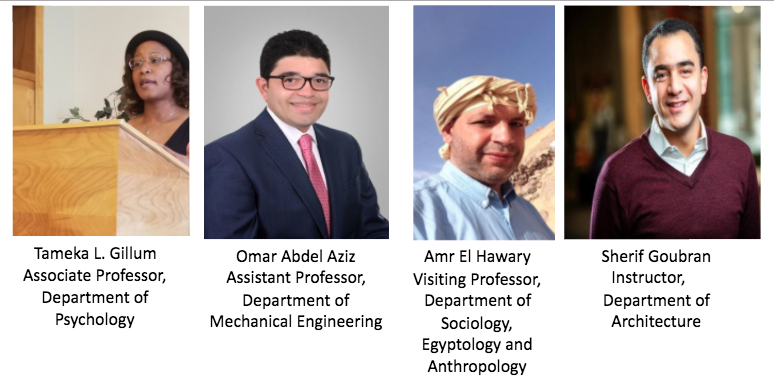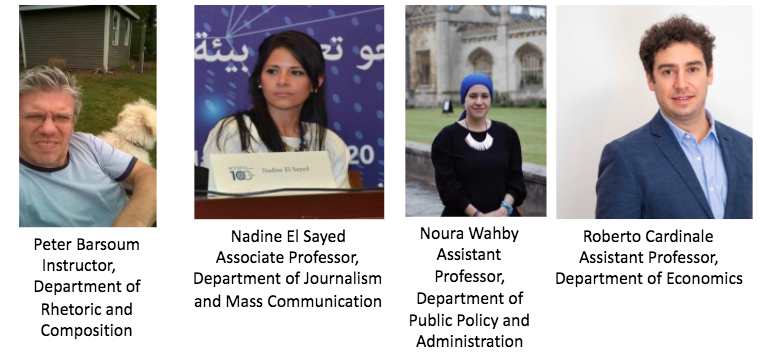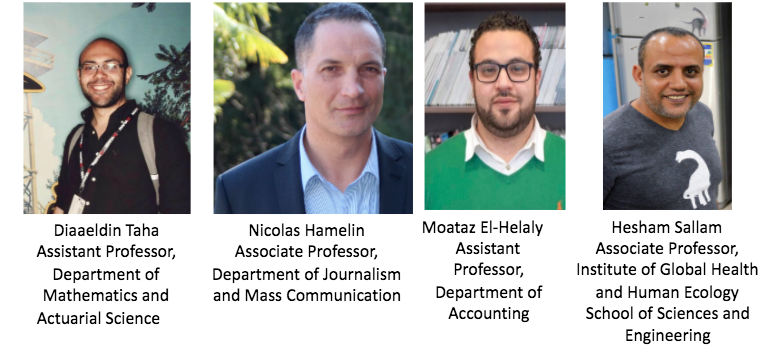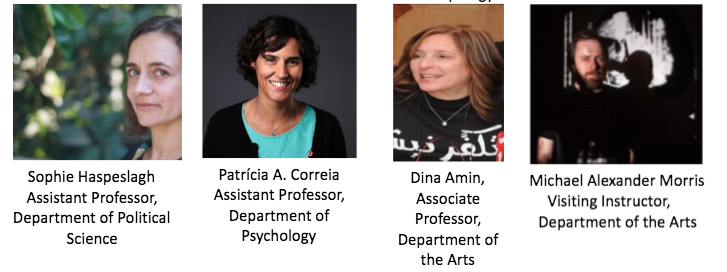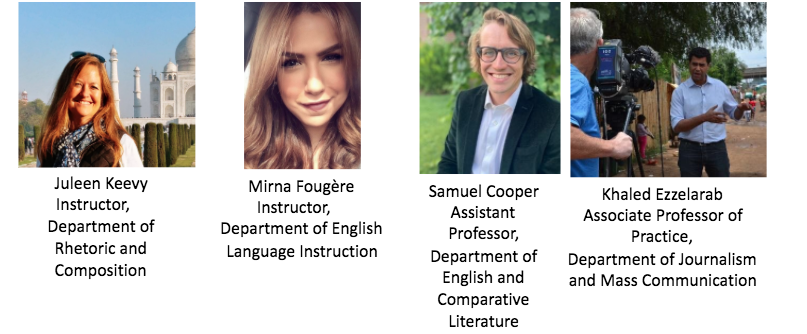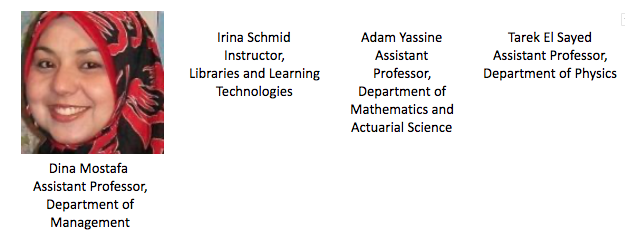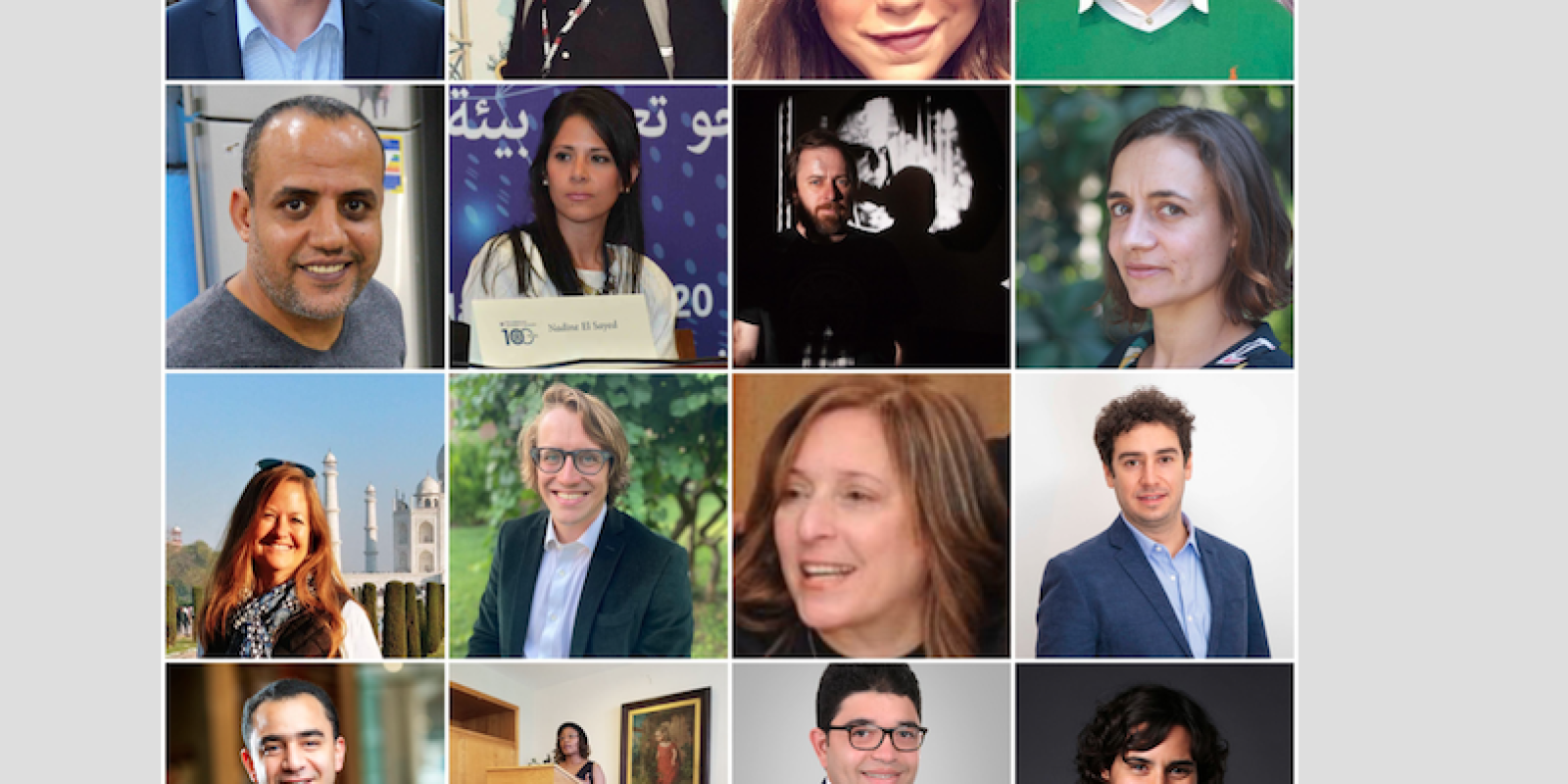
'My Aim is to Inspire' — Meet AUC's Newest Faculty Members
"It is my honor and pleasure to serve the AUC community," said Daniel Ortiz, dean of Libraries and Learning Technologies. "It’s a wonderful University and a marvelous country. I am at home."
New faculty members joining AUC this semester span an array of disciplines, research interests, cultural backgrounds and more, but all have one thing in common: They’re excited about joining AUC.
“I chose to join AUC as it is a highly respected institution of learning in the MENA region,” said Peter Barsoum, instructor in the Department of Rhetoric and Composition. “The vibrancy of the institution matches the richness and vibrancy of Cairo.”
Teaching globally isn’t new for Barsoum, who lived in Uzbekistan prior to joining AUC.
Calling AUC “a great place to teach Egyptology,” Amr El Hawary, visiting professor in the Department of Sociology, Egyptology and Anthropology, said he looks forward to starting new research initiatives on ancient Egypt.
This semester’s new faculty face the challenges left off from the COVID-19 pandemic, either teaching completely remote, face to face or adapting a hybrid model.
For Omar Abdelaziz, assistant professor in the Department of Mechanical Engineering, teaching should achieve the same goal, whether online or face to face.
“Teaching is to creatively attract students’ interests, to passionately deliver information and to thoroughly quantify students’ learning,” he said. “It's also about the ability to create a classroom environment that fosters students' development and fulfills their potential.”
Tameka Gillum, associate professor in the Department of Psychology, said, “My approach to teaching students — online and face to face — includes creating an engaging classroom environment where students are able to critically think about and apply what they are learning.”
Juleen Keevy, instructor in the Department of Rhetoric and Composition, echoed the same sentiment, emphasizing the importance of making sure students are engaged throughout the class.
Some faculty members look forward to using online teaching as an opportunity to learn more and change some aspects about their classes.
“I think that being deprived of face-to-face interactions has given me a greater appreciation for [the students’] unique communicative qualities that online alternatives cannot replicate, and this will make me a better teacher when we do resume in-person classes. ” said Samuel Cooper, assistant professor in the Department of English and Comparative Literature.
Michael Morris, instructor in the Department of the Arts, said he is facing a bit of a challenge teaching film online.
“I have so much to learn from the students here who have very different experiences than I have had,” he said. “My aim is to inspire, and I know I will be inspired in turn by what students here create. I look forward to creating connections between students and the wider creative community of Cairo and Egypt. ”
And AUC isn’t a new place for a number of incoming faculty members.
Nadine El Sayed, assistant professor of practice in the Department of Journalism and Mass Communication whose research focuses on blogging and microblogging in the Arab world, said, “AUC has always been a second home to me, both as an undergraduate student and as an adjunct faculty member.I am also lucky to join such a vibrant, diverse and welcoming community that I have always felt a part of.”
Dina Amin, assistant professor in the Department of the Arts, said that AUC had a “profound” impact on her life and career and hopes to give back by encouraging her students to think creatively and be engaged.
“I look forward to this new phase at AUC and to continue my journey at the Department of Architecture,” said Sherif Goubran ‘14, instructor in the Department of Architecture.
AUC’s new faculty members will teach a wide range of subjects, from physics and neuroscience to political science and finance.
“I am a neuroscientist investigating the role of neuromodulators in brain circuits and behavior,” said Patricia Correa, assistant professor in the Department of Psychology. “I am also interested in interdisciplinary approaches, such as art-science collaborations and neuroscience and education.”
The research focus of Sophie Haspeslagh, assistant professor in the Department of Political Science, is 9/11 and the war on terror’s dramatic impact on conflicts and peace processes worldwide.
“I was especially keen to join the political science department to teach a diverse group of students about international relations and help equip them with the tools not only to understand the world but also to be actors of change,” she said. "I can’t wait to meet my colleagues and students. I am looking forward to intense debates and to being challenged."
“My research interests lie at the intersection of theoretical condensed matter physics, computational physics and, recently, quantum information,” said Tarek Elsayed, assistant professor in the Department of Physics. "I am looking forward to using the many resources available to the faculty and my interaction with the AUC community at large to grow not only my academic, but also nonacademic skills, to form a research group with both graduate and undergraduate students and to provide an engaging and stimulating teaching experience to my students," he added.
One faculty member, Merna Hassan, instructor in the Department of English Language Instruction, views her new job as an opportunity to give back to a place that nurtured her for both her undergraduate and graduate degrees.
“Being in the education field has opened up the opportunity to once again return to my second home,” she said. “I owe a lot to my AUC, and the time has come to give some back.”
Faculty Mentoring
This academic year, the Office of the Provost in collaboration with academic departments is piloting a new faculty mentoring program that includes professional and personal guidance in different domains: teaching and learning, and liberal arts. It will comprise both one-on-one and group mentoring, to increase the exposure of new faculty to a broad array of experienced colleagues.
Academic departments are pairing up a mentor with a new faculty mentee. At the end of this academic year, department chairs will help the Office of the Provost in assessing this pilot experience by providing data on the competencies and satisfaction of both the mentor and mentee, quality of the support provided by mentors, achievement of defined goals and outcomes for mentoring as well as tools and resources needed to support mentors in their roles.
Meet the New Faces
